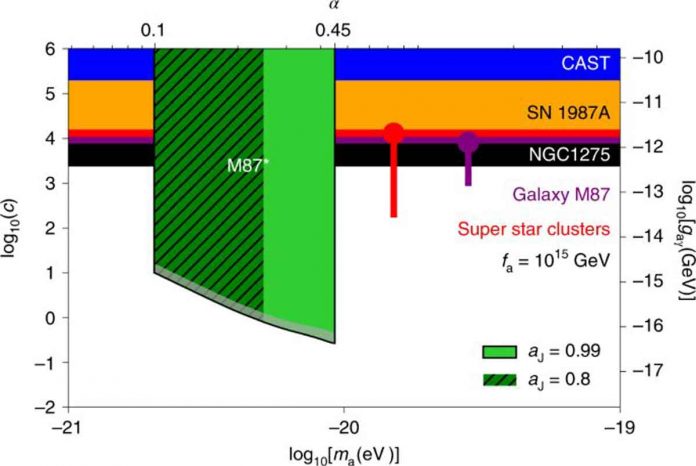A team of Chinese and German have found that data from the Event Horizon Telescope (EHT) rules out the likelihood of axion particles in a specific mass range around the black hole M87. The study was published in the journal Nature Astronomy. Scientists describe their analysis of data recently obtained from the EHT and what it showed about time-varying changes in the polarization’s direction.
Axions were first proposed back in the 1970s to explain why there is so little antimatter in the universe. The particles are also theorized to be part of dark matter. But no one has been able to prove they exist. Scientists continue to look for circumstantial evidence of their existence.
In this new study, scientists have looked into another theoretical idea, one that suggests axions should build up in clouds around black holes. Scientists had not been able to test this theory until recently. Because they have not had images made of the polarized light emitted from a black hole. This changed last year when the EHT captured images of the black hole M87. Then release them for use of other researchers.
Theory suggests that axions in a cloud around a black hole should alter the polarization of light coming from that part of the cloud. There should be a wobble. Scientists analysed the data from EHT. They looked for such a wobble. They had to filter out other material that could also contribute to a wobble. They found that the remaining bit of wobble ruled out the possibility of ultralightweight axions in the cloud. The techniques they used could also be applied to the search for axion-like particles around other black holes. This includes one at the centre of the Milky Way galaxy, which just happens to be one of the upcoming targets of the EHT.

